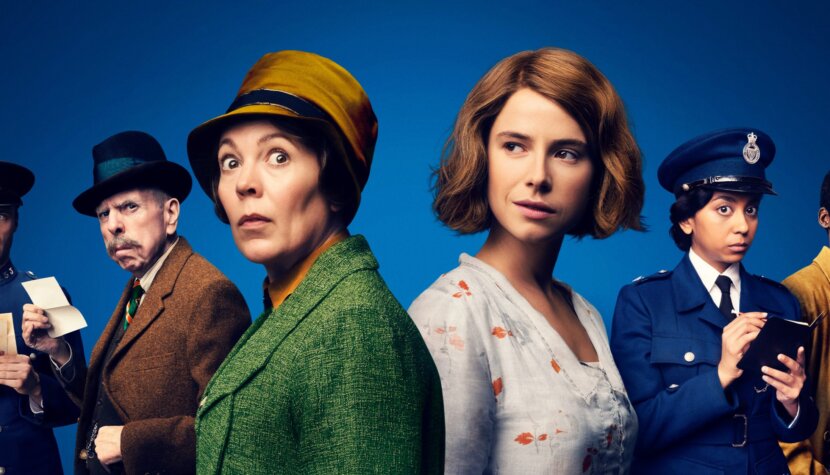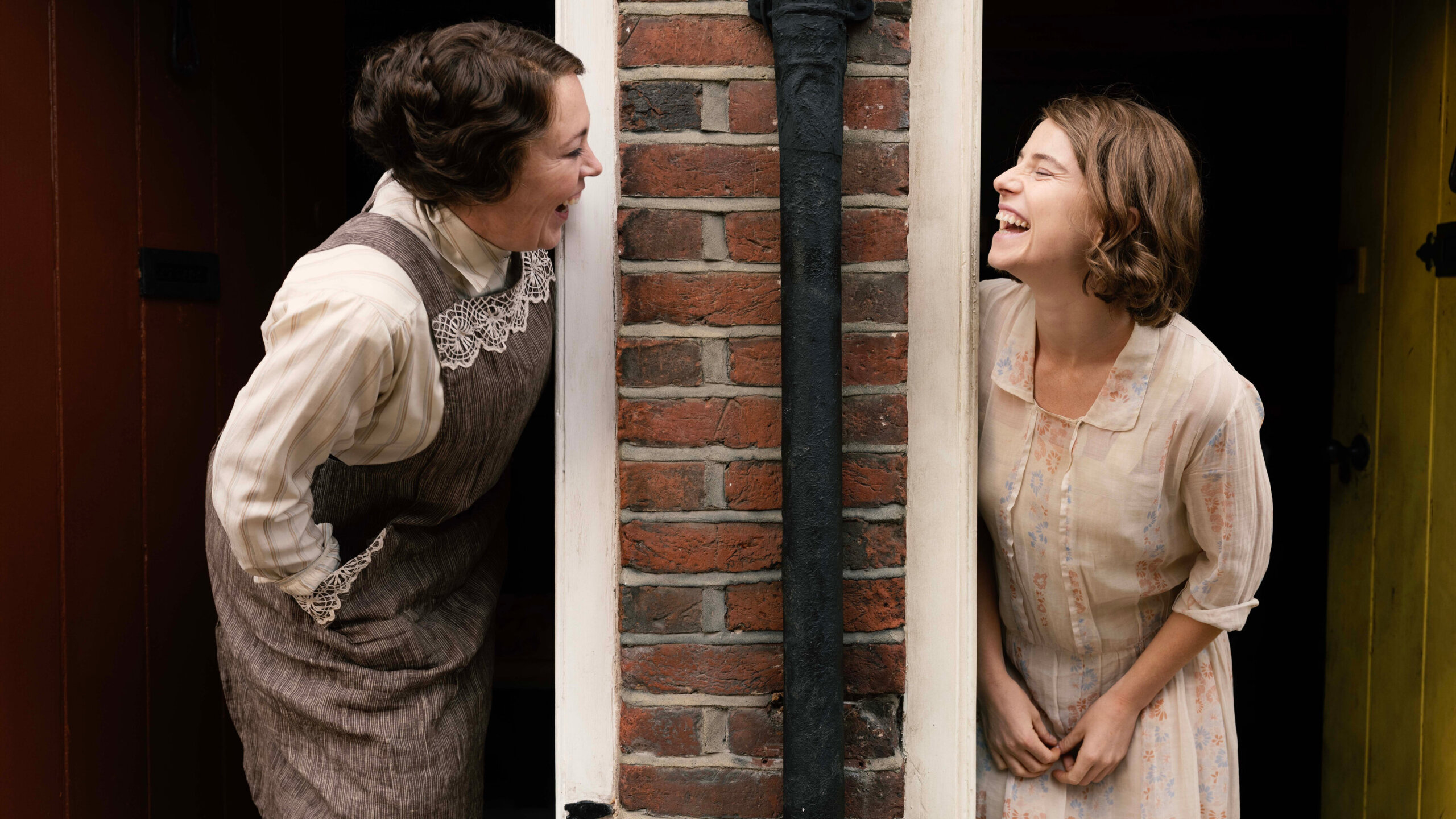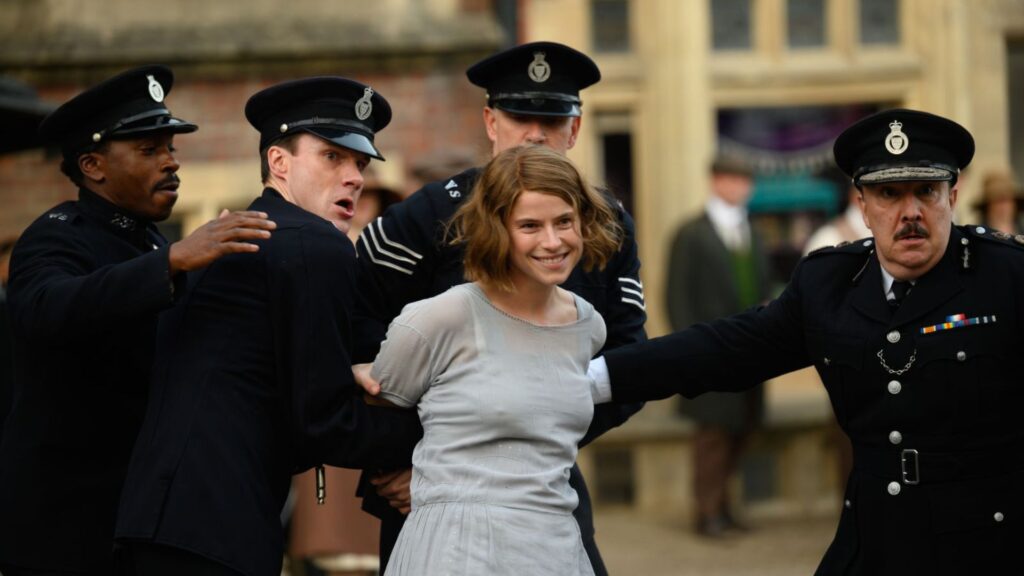WICKED LITTLE LETTERS. Greetings from a Hater [REVIEW]

Good middle-of-the-road cinema, good women’s cinema, good British cinema – “Wicked Little Letters” is written in a comedic tone but hides surprisingly many layers beneath it.
Great Britain, the 1920s. When devout old maid Edith (Olivia Colman) starts receiving obscene anonymous letters, her family’s suspicion immediately falls on their neighbor, the mouthy Irishwoman Rose (Jessie Buckley). Who else in their exemplary neighborhood could be writing such hurtful insults, if not this alcohol-abusing newcomer? After a brief interrogation and despite a lack of definitive evidence, Rose is sent to prison. The only person who has strong doubts about her guilt and decides to investigate further is a young policewoman, Gladys (Anjana Vasan).

The film by Thea Sharrock (director of “Me Before You”) is inspired by a true story that shook the town of Littlehampton in the 1920s. Of course, the screen adaptation involves a lot of creative liberties – I encourage you to read about the actual case after watching the film – but the main elements are the same: someone harassed residents with venomous letters for years, and the whole mystery was solved by a woman: Gladys Moon, the first policewoman in the history of Sussex County.
“Wicked Little Letters” is very funny, but it’s a subtle humor, the kind whose understanding – I feel – is dwindling year by year, as we all live in the hell of social media literalness and exclusionary flame wars. That’s why you might read about the British humor, satirical exaggeration of human types, and the almost imperceptible pinch of Monty Python-esque grotesque in “Wicked Little Letters” as “feminist propaganda” and a “black-and-white vision of the world” in some places. If someone can only take that much from this subversive story, they must be living in a flat, black-and-white world completely dominated by political squabbles. “Wicked Little Letters” is not for viewers who get offended by jokes and lack self-distance. The classic slogan “what are you laughing at? You’re laughing at yourselves” shines through in this cleverly critical comedy of human and social vices.
There really are no good and bad characters here. The film is carried by interestingly written and acted characters. I won’t dwell on Buckley and Colman, who deliver high quality as expected. In the lively, gossip-filled, and busy fabric of the town, other characters also stand out. Very funny scenes involve Gemma Jones as Edith’s devout mother or Joanna Scanlan as a tough farmer, while Timothy Spall evokes a mix of fear and pity. My discovery, however, is the relatively unknown Anjana Vasan as the policewoman; she undoubtedly has a knack for comedic roles, didn’t let herself be overshadowed by the two main actresses, and besides – she can express so much with just her eyes!

The story of the “wickeed little letters” from Littlehampton is much more relevant today than just a reminder of a peculiar criminal case from a century ago. In the 1920s, the person who wrote malicious anonymous insults to neighbors posed a puzzle: it wasn’t understood why someone would harass people who hadn’t done anything to them. Today, there probably isn’t an internet user who hasn’t had a bucket of slander poured on them. We already know how dark instincts are unleashed in people by anonymity. “Wicked Little Letters” looks under the skin of the hater, performing a vivisection of their psyche – but does so with empathy. It’s the harasser you’ll sympathize with the most in this film, and the scene where you discover their identity will grab you by the throat. It confirms the old truth that the most unhappy people torment others the most.
If Sharrock’s film has any thesis, it’s an encouragement for greater freedom: in expressing anger, opinions, simply oneself. It talks about the consequences of suffocating in family, social roles, and expectations of the surroundings for years. It also convinces that it’s never too late for uninhibited laughter, and what might be the end of the world and a prison for one person can turn out to be liberation for another.

